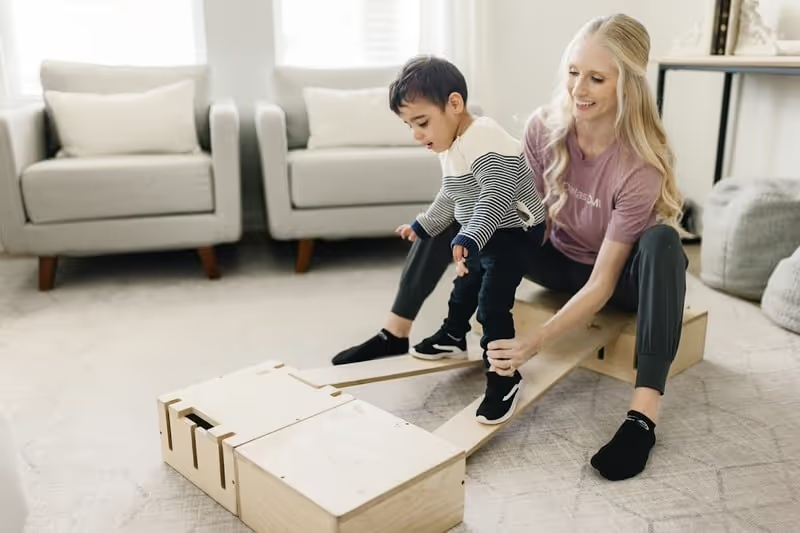Understanding Pediatric Dystonia: How DMI Physical Therapy Can Improve Motor Function

Pediatric dystonia is a neurological movement disorder that causes involuntary muscle contractions, leading to repetitive movements, abnormal postures, or twisting motions. It can be present from birth or develop later due to other conditions like cerebral palsy, brain injury, or genetic syndromes. For many families, navigating treatment options can be overwhelming. Fortunately, Dynamic Movement Intervention (DMI) offers a structured, results-driven approach to improving motor control and functional movement in children with dystonia.
Understanding How Dystonia Affects Movement
Children with dystonia often struggle with:
- Uncontrolled muscle activity that interferes with voluntary movement
- Poor balance and postural stability
- Difficulty initiating or sustaining movement patterns
- Delayed motor milestones, particularly in gross motor skills like sitting, crawling, or walking
These challenges impact not only physical function but also independence, confidence, and participation in daily life. Early and consistent physical therapy can make a major difference in long-term outcomes.
What Is Dynamic Movement Intervention?
Dynamic Movement Intervention is a hands-on therapy technique designed to improve gross motor function in children with neurological conditions. It focuses on activating the brain’s neuroplasticity - its ability to create new movement pathways—through structured, repetitive movement challenges.
During DMI sessions, children are guided through therapeutic positions that challenge their balance, coordination, and postural control. The therapist adjusts the difficulty level in real-time, promoting motor learning and improving the child’s ability to initiate and control movement.
DMI is ideal for children with motor impairments - including dystonia - because it builds the brain-body connection through intentional, developmentally appropriate movement.
How DMI Helps Children with Pediatric Dystonia
DMI physical therapy offers several unique benefits for children with dystonia:
- Promotes intentional movement: By guiding the child through repetitive, structured tasks, DMI encourages the brain to override involuntary muscle contractions.
- Improves postural control: DMI targets the trunk and core, helping children gain more stability and reduce the impact of dystonic movements.
- Strengthens neuromuscular pathways: The therapy stimulates alternative motor pathways to support smoother, more controlled motion.
- Enhances balance and coordination: Challenging balance reactions helps improve equilibrium and reduces the risk of falls.
- Encourages functional independence: With consistent progress, children often gain greater confidence in sitting, crawling, standing, or walking.
DMI is not a cure for dystonia, but it is a powerful tool for improving motor function and helping children access more of their potential.
Why Families Choose Dallas DMI for Dystonia Support
At Dallas DMI, we specialize in supporting children with a wide range of neurological and motor challenges - including pediatric dystonia. Our therapists are highly trained in the DMI method and build each session around your child’s individual goals and current abilities.
We believe in empowering both children and their families. That means clear communication, hands-on guidance, and parent coaching so you can continue supporting progress at home. Families searching for Dynamic Movement Intervention in Dallas turn to us for our experience, compassion, and results-oriented care.
Progress Is Possible with the Right Support
Dystonia can make motor development more difficult, but it doesn’t have to define your child’s future. With consistent support through Dynamic Movement Intervention, many children make significant improvements in strength, control, and confidence. At Dallas DMI, we’re here to help your child move forward—one step, roll, or crawl at a time.
Contact us today to schedule your appointment
Ready to Take the Next Step?
Schedule a free consultation to discover how our DMI intensive therapy can help your child thrive.

